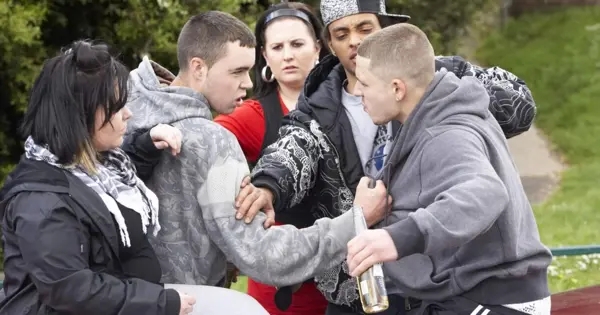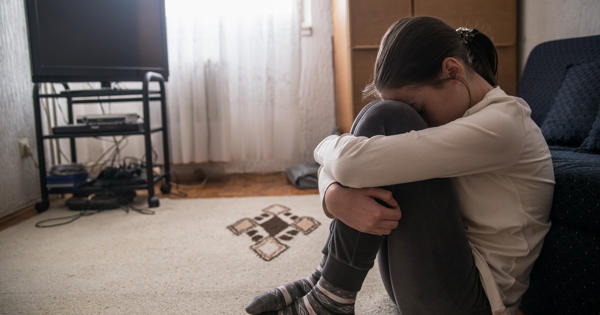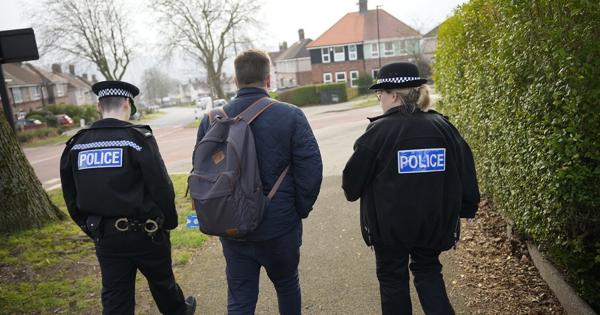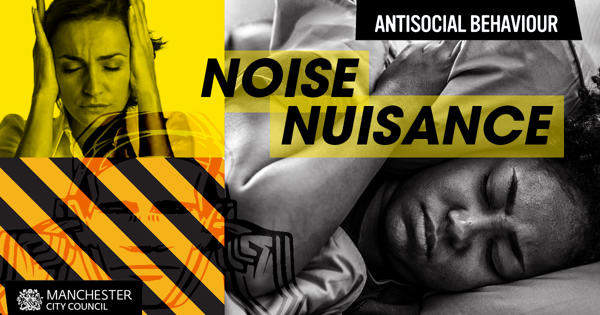
Report ASB
We take reports of ASB very seriously and will thoroughly investigate any cases.

Domestic Violence & Abuse
If you have been subject to domestic abuse, please see below more information and some support agencies.

What is Hate Crime?
Hate crimes are acts of violence or hostility directed at people because of who they are or who someone thinks they are.

Worried about someone?
Are you worried about someone or have a concern for their welfare?

Support & Wellbeing

ASB Case Review (Community Trigger)
The ASB Case Review is coordinated through Manchester’s Community Safety Partnership (CSP).

Being a Good Neighbour This Christmas: Simple Ways to Keep Our Communities Safe & Cheerful
Continue readingASB is legally defined as conduct:
- that has caused, or is likely to cause, harassment, alarm or distress to any person
- capable of causing nuisance or annoyance to a person in relation to that person’s occupation of residential premises, or
- capable of causing housing-related nuisance or annoyance to any person.
So, what is a hate crime/incident?
A hate crime/incident can be any criminal or non-criminal act which is perceived by the victim or any other person to be motivated by hostility or prejudice based on a person’s disability, race, religion, sexual orientation or gender identity or perceived disability, race, religion, sexual orientation or gender identity. A hate crime/incident could be an act such as graffiti, vandalism to a property, name calling, assault or online abuse using social media.
A victim doesn't have to be a member of the group at which the hostility is targeted. In fact, anyone could be a victim of a hate crime.
The police can only prosecute when the law is broken but can work with MCC Housing Services to try and prevent any escalation and we will work in a supportive manner and approach to seek resolution.
MCC Housing Services accepts that many neighbours will naturally have different values or opinions and sometimes this can cause problems. However, not all reports relating to behaviour that impacts on an individual can be deemed ASB.
The following are some examples but not exhaustive of reports that are not ASB:
- noise from children when they’re playing
- family disputes
- babies crying
- smells from cooking/cannabis
- sounds of normal day to day living that we can hear such as
- opening and closing of doors, going up and down stairs
- one-off parties such as BBQs, birthday or Christmas parties
- providing they don’t cause an unacceptable disturbance
- clashes of lifestyle, including cultural differences
- minor personal differences
- putting rubbish out on the wrong day
- parking in the wrong bay/area
Noise nuisance is a common complaint. It can be difficult to manage due to varying tolerance levels and it can be difficult to evidence noise.
If your neighbour is playing loud music, we would encourage that you approach them in the first instance and ask them to turn the volume down as it is disturbing you in your own home.
If the noise continues, we may ask that you complete a diary of dates, times, what happened, how you felt to assist us in building a case.
We may feel that we should help you set up Noise Monitoring equipment, or grant you access to a noise recording app which is a convenient way to easily gather the evidence of the unwanted noise.
This system is also helpful if your case goes to court.
We have a duty to investigate if a statutory nuisance exists. If your neighbour is persistently playing music at an excessive level (regardless of the time) then please report this to us.
We expect there to be some tolerance to noise levels between neighbours, particularly for those living in flats.
Noise such as:
- babies crying
- toilets flushing
- washing machines/tumble dryers
- vacuuming
- dog barking
- children playing
- Doors opening closing
- walking on floorboards
are unlikely to be a breach of tenancy (except in exceptional circumstances).
You can report any ASB-related incident on the ASB page of the website.
You can also:
- Contact the CSC
- in-person at our open offices.
- MCC’s Community Safety Team
Emergencies or criminal behaviour should be reported directly to the police.
We will discuss your concerns with you to determine the best way to support you. If needed, we will open a case and work with you to create an action plan, which will be updated throughout the duration of the case.
You will be given the contact details of your dedicated officer, along with information on how to report any further incidents.
We have a dedicated, specialised team that will respond to your complaint.
Our aim is always to resolve anti-social behaviour (ASB) without the need for legal action.
We may take steps such as speaking directly with the individual responsible for the ASB, followed by written confirmation of the conversation.
Where necessary, we may issue tenancy warnings, clearly outlining the behaviour that needs to change and consider appropriate support referrals to support a change in behaviour.
Mediation is a process in which a neutral and independent trained person helps people in dispute work out an agreement.
We use an independent mediation service.
Mediation can help to resolve disputes involving noise, children, and in some harassment cases.
Legal action can often be a lengthy process, this can be due to the level of threshold that needs to be sought. However for threats of violence or harm we can take a case to court within 24 hours.
For ongoing ASB cases, it could take up to 6 months to gather the level of evidence required. Be assured that MCC Housing Services will support you through the process keeping you up to date.
Once you report anti-social behaviour (ASB), you may hear the term 'evidence' used frequently.
For us to act, we need to demonstrate that the allegations are supported by evidence. This may include videos, photographs, or audio recordings.
However, we will never ask you to put yourself at risk or in a situation that could escalate the issue.
We can provide tools and support to help you gather evidence safely as part of your complaint.
Yes, you can remain anonymous. However, your statement will be treated as hearsay, which may limit the action we can take if the behaviour continues.
In such cases, a signed statement may be required to progress further. MCC Housing Services will provide support throughout this process to ensure you feel safe and informed.
We appreciate that you may be concerned about a problem starting again.
We can assure you that if this does happen, your case officer will start from where the case was closed and will guide you through the process.
Criminal activity can include:
- drug related activities
- assault, including violent or threatening behaviour
- hate crime
- criminal damage
- theft
If you are in immediate need of assistance, or if a crime is in progress, then phone 999. Call 101 to report something to the police that isn’t an emergency, or report online.
If you wish to report crime anonymously then you can report through Crimestoppers on 0800 555 111 or report online.
If you make a report to the Police relating to criminal activity in your neighbourhood, please let MCC Housing Services know that this has happened along with any incident/crime numbers.
We take criminal behaviour in our properties and on our estates very seriously. If you a member of your household, or a visitor to your address are responsible for criminal behaviour you will be putting your tenancy at risk.
We will assist the police with any investigations into criminal activity at any of our properties. If a person you are responsible for is convicted we may seek legal action to end your tenancy.
Useful contact numbers
- Age Concern - 0161 728 2001
- Childline – 0800 1111
- Crime Stoppers – 0800 555 111
- Domestic Violence Hotline – 0808 200 0247 (24 hour)
- NSPCC – 0808 800 5000
- Parentline Plus – 0808 800 222

ASB Awareness Week: Noise Nuisance

ASB Awareness Week: Youth Nuisance

ASB Awareness Week: Mediation

ASB Awareness Week: Resolution and Mediation Success

ASB Awareness Week: Noise Nuisance & Injunction Enforcement
Are you in danger right now?
If the anti-social behaviour (ASB) or abuse puts you, your property or someone else in danger right now, phone 999 and ask for the police.
Is it a noise problem?
- If the noise is coming from a neighbour and you can’t resolve it, report the noise here.
- If the noise is on the street (e.g. fighting, drunkenness), phone 101 and report it to the police.
- If the noise is from elsewhere (e.g. roadworks, a pub), report the noise on the main Manchester City Council website.
- We will contact you to let you know we’re investigating the problem
- We may need to talk to you to get more information, in which case we will arrange to meet you wherever you feel comfortable within three working days. In some cases, we may want to meet with you within 24 hours
- If needs be, we will talk through options with you about how we can solve the problem
- We may need you to collect evidence (e.g. by filling out an incident diary), but we will help you every step of the way
- Before we speak to the person being complained about, we will speak with you first to make sure you’re OK with what we’re doing
- We will take a step-by-step approach to try and get them to change their behaviour. If the ASB continues, and there is enough evidence, we will take legal action. We can ask the court to give us:
- a civil injunction order - a legal order to stop the person acting anti-socially, or
- permission to evict them
- If the person has put you or someone else in danger, we may go straight to taking legal action
A hate crime is any criminal offence that you or anyone else believes has happened to you because of your:
- race, colour, ethnic origin, nationality or national origins
- religion
- gender or gender identity
- sexual orientation
- disability
- alternative subculture
Before reporting it to us, please report the crime to police by calling 101 or - in an emergency - 999.
If you report a hate crime to us:
- We will contact you to let you know we’re investigating the problem
- We will need to talk to you to get more information, in which case we will arrange to meet you wherever you feel comfortable within three working days. In some cases, we may want to meet with you within 24 hours
- We will complete a Hate Crime report on the Truevision website to ensure Greater Manchester Police also have the incident recorded on their system
- We will need your help to collect evidence (e.g. by filling out an incident diary), but we will help you every step of the way
- Before we speak to the person being complained about, we will speak with you first to make sure you’re OK with what we’re doing
- We will warn them to stop. If their behaviour continues, and there is enough evidence, we will take legal action. We can ask the court to give us:
- a civil injunction order - a legal order to stop the person acting anti-socially, or
- permission to evict them
Complaints
If you've reported ASB or abuse to us and are not happy with the way we have dealt with it, you can make a complaint to us or ask us to review your ASB case (if it meets the relevant criteria).




